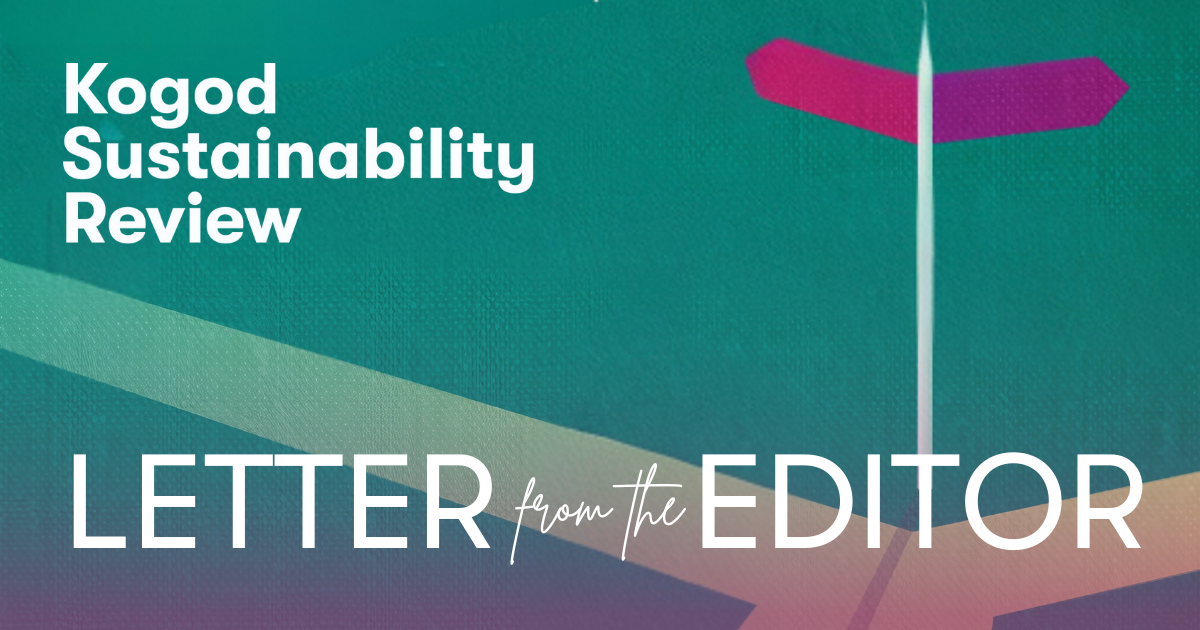
Fielding Burnette
Editor in Chief, Kogod Sustainability Review
Dear Contributors and Readers,
With enthusiasm and critical reflection, I share this message introducing Volume 5 of the Kogod Sustainability Review (KSR). True to its mission as a platform for substantive dialogue at the intersection of business, environmental science, and policy, this edition turns its focus to a theme of urgent relevance and far-reaching importance: “Sustainability at a Crossroads.” In this volume, we examine the contemporary forces shaping the integration of sustainability within our economic and societal frameworks.
Yet, as Editor-in-Chief, I find it necessary to interrogate—and perhaps even challenge—the premise that sustainability is truly at a “crossroads,” in the sense of facing a set of equally viable paths. While it is clear that headwinds are emerging—such as corporate retrenchments from sustainability commitments, litigation challenging established legal precedents, divestment from sustainability-centered proxy voting, and national backpedaling on environmental requirements—it would be a misreading to infer from these developments a fundamental pause or reversal in direction.
Indeed, current observations suggest an underlying momentum and an unmistakable trajectory toward a more sustainable future. Fortune 500 companies, for instance, are increasingly compelled to embed sustainability into their financial and strategic planning—not out of idealism, but because it is essential to their long-term resilience and profitability amid political fluctuations and regulatory uncertainty. As influential players in the global economy, these firms are setting industry benchmarks, shaping consumer behavior, and driving supply chain transformation. The growing integration of environmental, social, and governance (ESG) factors into corporate governance—spurred by investor expectations, regulatory requirements, and employee activism—signals a structural shift rather than a passing trend.
Persistent challenges—whether they be gaps between consumer intent and action, economic constraints, or implementation complexities—should not be mistaken for dead ends."

Fielding Burnette
Editor in Chief, Kogod Sustainability Review
Rather, they represent obstacles along an already charted path. What is needed now is smarter implementation: engaging key actors across value chains, communities, and consumer bases. We are not witnessing a crisis of direction, but a moment of recalibration and refinement.
Accordingly, while Volume 5 carries the title “Sustainability at a Crossroads,” we invited contributors to approach this theme with a critical lens. We encouraged analysis that probes both the challenges and opportunities. We sought contributions that explore mechanisms to overcome persistent barriers, amplify successful initiatives, and strengthen collective action toward a more sustainable future.
Hence, KSR remains a vital forum for rigorous analysis and thoughtful perspectives, advancing an informed and constructive dialogue.
We look forward to your engagement, and thank you for your continued commitment to the Kogod Sustainability Review.
Respectfully,
Fielding Burnette
Editor-in-Chief
Kogod Sustainability Review
